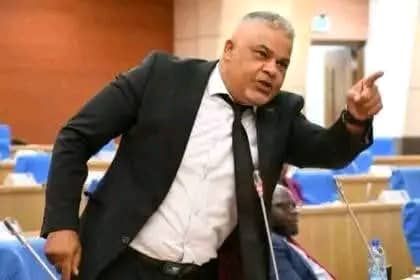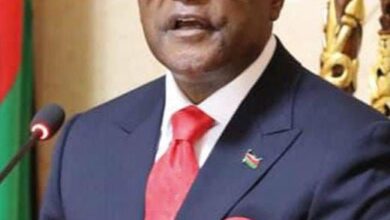News
Debate ignites over Speaker selection laws: Calls for constitutional reform intensify

By Burnett Munthali
Stakeholders are calling for a review of laws that guide the election of the speaker of Parliament.
The current legal framework, as outlined in Section 56(1) of the Constitution, provides that the speaker of Parliament is to be elected by lawmakers.
This election can involve individuals from within the Parliament or even from outside the House.

However, Sameer Suleiman, the Member of Parliament for Blantyre South East, has voiced strong reservations about this arrangement.
Suleiman holds the position that the speaker of Parliament should not be someone who is a sitting lawmaker.
Speaking in an interview with MIJ Online, Suleiman articulated his concerns over the current system.
He alleged that the status quo has cultivated favoritism in the manner parliamentary business is being conducted.
According to Suleiman, the presence of a sitting lawmaker as speaker potentially compromises neutrality and promotes partiality during legislative debates and decision-making.
As a solution, he has proposed that the speaker should be elected strictly from a list of individuals who are not Members of Parliament.
This, he argued, would enhance objectivity and eliminate the biases that often creep into proceedings due to political affiliations.
Suleiman’s position appears to reflect a growing sentiment among some political observers who feel that the role of speaker requires a high level of independence that may be difficult to uphold for someone already embedded within the political machinery of the House.
On the other hand, not everyone agrees with this perspective.
Aloisious Nthenda, a democracy advocate, has publicly taken a different stance on the matter.
Nthenda believes that lawmakers must remain committed to the constitutional provision that allows them to elect a speaker from among themselves.
He stresses the importance of choosing a candidate who is known for impartiality and adherence to democratic values.
According to Nthenda, the challenge is not necessarily the background of the speaker but rather the integrity and conduct of the individual occupying the role.
He further argued that internal experience and familiarity with parliamentary processes are advantages that can enhance the speaker’s effectiveness if the right person is chosen.
Nthenda’s position underscores the complexity of the issue—balancing neutrality with experience and legislative insight.
As the debate continues, there is a growing recognition that perhaps the conversation should not just be about who qualifies for the position, but how to strengthen accountability mechanisms once someone takes office.
Ultimately, both Suleiman and Nthenda reflect the broader public demand for a more efficient and transparent Parliament.
This renewed scrutiny on the speaker selection process could serve as the beginning of a deeper conversation on parliamentary reform in Malawi.
With Parliament’s integrity and functionality at the heart of the debate, stakeholders are watching closely to see whether the call for reform will translate into tangible legislative action.






